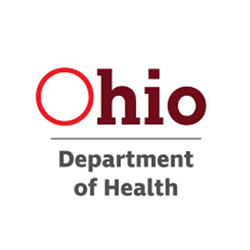 The COVID-19 Pandemic has created a great strain on the nation’s healthcare system, but it’s not come without its economic difficulties as well. State leaders are working to ensure resources are readily available to Ohio businesses and workers to ensure we all weather this difficult time, remembering we are all in this together.
The COVID-19 Pandemic has created a great strain on the nation’s healthcare system, but it’s not come without its economic difficulties as well. State leaders are working to ensure resources are readily available to Ohio businesses and workers to ensure we all weather this difficult time, remembering we are all in this together.
The links here will connect you with local, state and federal resources and funds for the following impacted categories:
- Small businesses and non-profits: economic disaster loan program, bar and restaurant relief, daycare ratio updates and more.
- Individuals and families: unemployment resources, health insurance relief, school meals and more.
Small Businesses & Non-Profits
Ohio small businesses and nonprofits are now eligible for several programs through the SBA. This includes low-interest loans, loans that could be 100% forgiven if requirements are met and no payments for a year. Apply online at SBA.gov/disaster, which is recommended, or call (800) 659-2955 to have an application mailed to you. For assistance or questions you may also contact Kelly Conrad at conrad@cityofmentor.com.
- Liquor buyback
The Ohio Department of Commerce will immediately begin offering a liquor buyback option to support bars and restaurants. This is intended to aid those establishments that have stocked up on high proof liquor, but now are facing closure to in-house patrons. Bars and restaurants can return unopened, high proof liquor products (obtained within the past 30 days) to the agency where they purchased the product. This opportunity is also extended to those with temporary (F2) permits for events scheduled between March 12 and April 6, 2020. Questions about this program should be directed to the Liquor Enterprise Service Center at 1-877-812-0013 or OhioLiquorInfo@Com.Ohio.gov. - Small Business Administration’s (SBA) Economic Injury Disaster Loan Program
Ohio small businesses and nonprofits are now eligible to apply for up to a $2 million, low-interest loan through the SBA. Apply online at SBA.gov/disaster, which is recommended, or call (800) 659-2955 to have an application mailed to you. - Publicly-Funded Daycares
An executive order issued last week increased the number of children allowed to be supervised by child care staff, depending on the type of program and ages of the children. The order also increased from 10 to 20 the number of paid absent days for providers serving children in the Publicly Funded Child Care program, and it provides child care programs with 21 paid pandemic days if they must close their programs because of the pandemic. Read the Executive Order. - The Ohio Department of Transportation (ODOT)
The Ohio Department of Transportation (ODOT) is modifying the process for haulers carrying heavy loads of essential goods. Generally, Ohio requires haulers with loads classified as “oversized” to seek advanced permission from ODOT before they are legally allowed to travel in the state. Haulers carrying these essential goods can download and print the permit at transportation.ohio.gov. - Ohio’s Bureau of Workers’ Compensation (BWC)
Ohio’s Bureau of Workers’ Compensation (BWC) system is the exclusive provider of workers’ compensation insurance in Ohio and serves 249,000 public and private employers. To help businesses facing difficulties due to the COVID-19 pandemic, the Ohio BWC is announcing insurance premium installment payments. For more information, visit bwc.ohio.gov. - Grace Period for Health Insurance Premiums
All health insurers are required to provide the option of deferring premium payments, interest free, for up to 60 calendar days from each original premium due date. This means that employers can defer their premium payments up to two months, giving them some relief on costs, while keeping their employees insured. Learn more.
Individuals and Families
- In demand jobs during the pandemic
Many parts of our society are experiencing high demand during this pandemic and are seeking more employees; find available jobs now. - Unemployment
Questions and answers regarding the coronavirus (COVID-19) and the impact on unemployment benefits can be found here. - Pay benefits for reduced work hours
SharedWork Ohio allows workers to remain employed and employers to retain trained staff during times of reduced business activity. The Ohio Department of Job and Family Services provides eligible individuals an unemployment insurance benefit proportionate to their reduced hours.Learn more. - Food, cash and medical assistance
The Ohio Department of Job and Family Services provides food, cash and medical assistance to individuals and families in need. To review eligibility requirements and apply for assistance, please visit: https://benefits.ohio.gov/. - School meals
Decisions on how free breakfast and lunches are distributed to students is being made by each district. Contact your local district. You may find additional information here. - Keep Ohio Connected (internet service availability)
Learn what Internet Service providers are doing to keep Ohioans connected, including keeping service turned on during the pandemic and waiving late fees. - Learn new tech skills
TechCred helps Ohioans learn new skills and helps employers build a stronger workforce with the skills needed in a tech-infused economy. Many of these trainings can be completed online. For more information. - Existing DSA Programs
Access existing programs to find local non-profit resources available for those in need, to help maintain your small business, and reduce energy costs to your home.- Find a Community Action Agency: locally controlled private nonprofit organizations whose purpose is to reduce poverty and to help low-income people become self-sufficient.
- Access Entrepreneurship and Business Assistance Centers: Resources for starting or maintaining a small business in Ohio
- Learn about Energy Assistance Programs: Learn how to manage your home energy costs.
- Injured worker temporary telehealth policy
Learn how the BWC is initiating temporary policy changes that will allow flexibility in the provision of care to injured workers: https://www.bwc.ohio.gov/downloads/blankpdf/PolicyAlert-TempTeleHealthCOVID-19.pdf - Medicaid provisions for uninsured
Learn about how to qualify for Medicaid coverage - Maintaining Healthcare Coverage for Your Family
Health insurers must allow employers to continue covering employees, even if the employee would otherwise become ineligible because of a decrease in hours worked per week. We know employees may be working a significantly reduced schedule right now, through no fault of their own, and we want to make sure they continue to have access to their health insurance if it’s feasible for the employer at this time. - Assistance for Lost Insurance Coverage
Those who do lose insurance coverage, are eligible for a special enrollment period to gain new coverage. Premium subsidies may be available for those who qualify by purchasing plans on the federal exchange.
